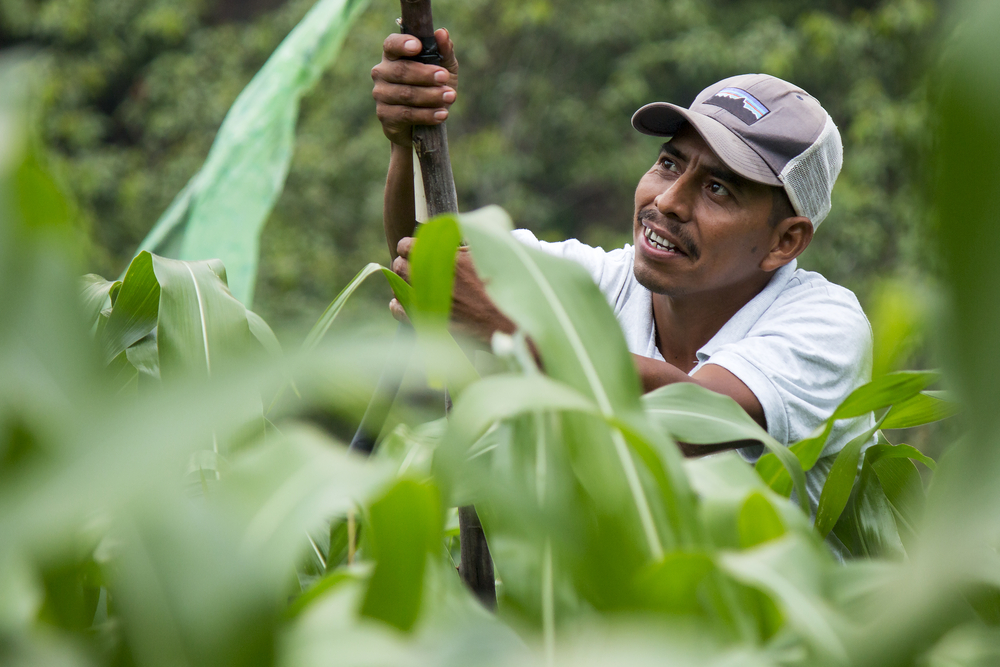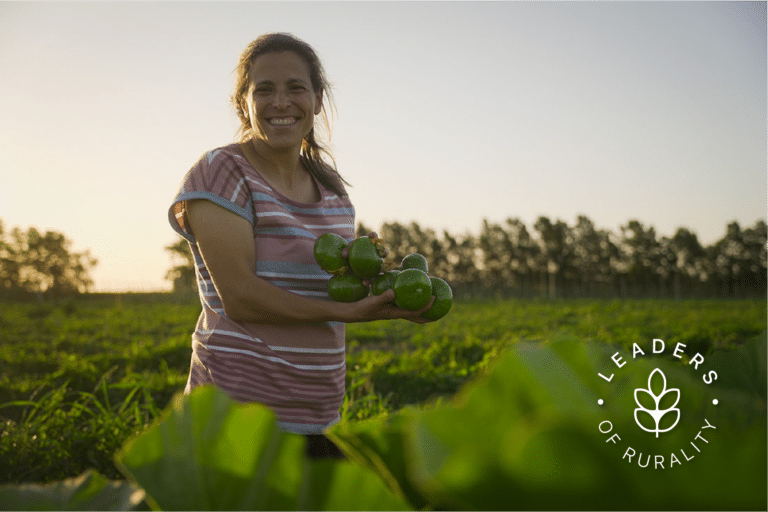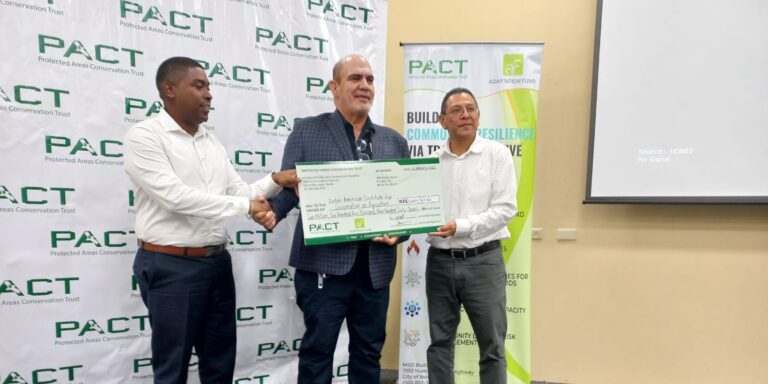Initiative by the EU and the Institute seeks to improve the climate resilience and food security of at least 3,000 small-scale farmers of basic grains in the Central American Dry Corridor.

San José, 4 May 2022 (IICA). The Adapted Agroforestry Systems for the Central American Dry Corridor (AGRO-INNOVA) project of the European Union (EU) and the Inter-American Institute for Cooperation on Agriculture (IICA) promotes the creation of a network between public and private institutions and farmers’ organizations to facilitate innovation and technological transfer for small-scale farmers in this region, one of the areas of the planet most vulnerable to climate change.
The proposal to create the Agroforestry Regional Technical Network took its first steps at a workshop that brought together 44 technical specialists and researchers from the national public and private partners of the project, implemented in Costa Rica, El Salvador, Guatemala, Honduras, Nicaragua and Panama and organized by the EU and IICA with the support of the Tropical Agricultural Research and Higher Education Centre (CATIE).
The network will be made up of the national agricultural technology institutes of these nations, as well as coffee institutes, academic research centers and farming organizations.
Its initial role will be to establish collaborations and synergies to share experiences in agricultural, forestry and digital technologies, as well as good practices in successful experiences founded on research and technology transfer of multistrata agroforestry systems (which combine planting trees or forage with food production) with the capacity to be applied and adapted in different areas of the Central American Dry Corridor to address the challenges of climate change.
Miguel Arvelo, IICA Chief of Staff and Representative of the Institute in Costa Rica said, “Having a network of collaborators working as a team, together with strong institutions such as coffee institutes, research and development institutes and farmer organizations is vital to obtain results and generate an impact, especially on small-scale farming”.
Alberto Menghini, EU Head of Cooperation, supported this first step towards establishing the network, which forms part of regional efforts to resolve climate challenges in agriculture and “the food and nutritional security context of almost 6 million people in Central America,” and to improve livelihoods in rural areas.
“Technology puts tools in our hands such as satellite observation, precision agriculture and biotechnologies, allowing us to reinterpret an ancient science like forestry and harness technology for these pressing challenges”, said Menghini.
AGRO-INNOVA project goals include prioritizing the climate resilience and food security of at least 3,000 small-scale farmers of basic grains in the Central American Dry Corridor, one of the areas in the world most affected by extreme weather phenomena, through knowledge management, capacity building and strategic partnerships based on agricultural, forestry and digital technologies.
The project is present in 15 territories in the Central American Dry Corridor, made up of 34 towns or municipalities, where it has intervened in almost 750 hectares of farms of micro- and small-scale farmers, provided direct technical assistance to over 1,600, established 103 demonstration plots with an area of 78.26 hectares, and conducted training activities with the participation of 1,462 farmers.
All this has been achieved with the support of strategic partnerships with 31 partners, including institutions, private actors and leading farmers’ organizations in the region, and technical assistance from CATIE.
Muhammad Ibrahim, Director General of CATIE, said at the event, “In agroforestry systems, there are many lessons learned; documenting and systematizing the experiences that exist in the countries of one of the most resilient systems is what we see as the main focus to optimize production and benefits, including mitigation of and adaptation to climate change and addressing the issue of biodiversity conservation”.
Presentation of successful experiences
At the AGRO-INNOVA workshop, eight experiences were shared of multistrata agroforestry systems management at the national level that are being conducted jointly with the project, which include actions such as seed breeding, irrigation systems, production of bio-inputs, soil conservation and management, application of digital agriculture solutions and the use of trees adapted to the region’s climate conditions, which provide a number of benefits to farmers and the environment.
The Coffee Institute of Costa Rica presented adaptation and mitigation actions for sustainable coffee production in multistrata agroforestry systems models; the National Center for Agricultural and Forestry Technology of El Salvador presented actions in transfer and rural extension for the promotion of models under this system for small-scale farmers of the Central American Dry Corridor; and the National Coffee Association of Guatemala presented its Rural Coffee Training Center for training farmers.
The Honduras Coffee Institute presented technology transfer actions in multistrata agroforestry systems for small-scale grain farmers and the Office of Agricultural Science and Technology did so in pastures and basic grains. On the other hand, the Nicaragua Institute of Agricultural Technology presented its projects regarding validated technologies in basic grains, roots and tubers adapted to the conditions of the Central American Dry Corridor.
Lastly, the Panama Institute of Agricultural Innovation presented at this event its experience in the management of agrosilvopastoral system technologies.
Xinia Cháves, Executive Director of the Coffee Institute of Costa Rica, concluded, “The great opportunity that is presented to us with AGRO-INNOVA is to think of all the things that we can do. We can apply knowledge management while ensuring our commitment and collaborative work to reach a common goal, and do it to the best of our abilities, also addressing different experiences and generating content and concrete actions that make a difference in the field”.
More information:
Pedro Avendaño Soto, Coordinator of the AGRO-INNOVA Regional Executive Unit










